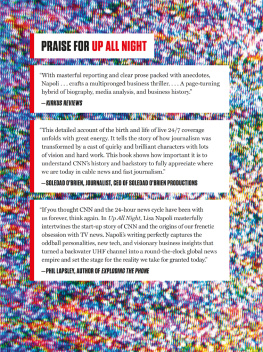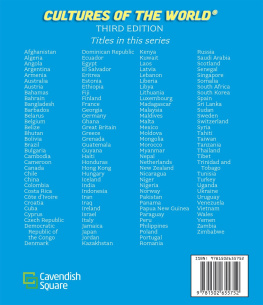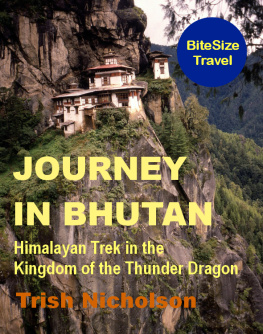Lisa Napoli - Radio Shangri-La: What I Learned in Bhutan, the Happiest Kingdom on Earth
Here you can read online Lisa Napoli - Radio Shangri-La: What I Learned in Bhutan, the Happiest Kingdom on Earth full text of the book (entire story) in english for free. Download pdf and epub, get meaning, cover and reviews about this ebook. year: 2010, publisher: Crown, genre: Science fiction. Description of the work, (preface) as well as reviews are available. Best literature library LitArk.com created for fans of good reading and offers a wide selection of genres:
Romance novel
Science fiction
Adventure
Detective
Science
History
Home and family
Prose
Art
Politics
Computer
Non-fiction
Religion
Business
Children
Humor
Choose a favorite category and find really read worthwhile books. Enjoy immersion in the world of imagination, feel the emotions of the characters or learn something new for yourself, make an fascinating discovery.

- Book:Radio Shangri-La: What I Learned in Bhutan, the Happiest Kingdom on Earth
- Author:
- Publisher:Crown
- Genre:
- Year:2010
- Rating:4 / 5
- Favourites:Add to favourites
- Your mark:
- 80
- 1
- 2
- 3
- 4
- 5
Radio Shangri-La: What I Learned in Bhutan, the Happiest Kingdom on Earth: summary, description and annotation
We offer to read an annotation, description, summary or preface (depends on what the author of the book "Radio Shangri-La: What I Learned in Bhutan, the Happiest Kingdom on Earth" wrote himself). If you haven't found the necessary information about the book — write in the comments, we will try to find it.
Lisa Napoli: author's other books
Who wrote Radio Shangri-La: What I Learned in Bhutan, the Happiest Kingdom on Earth? Find out the surname, the name of the author of the book and a list of all author's works by series.
Radio Shangri-La: What I Learned in Bhutan, the Happiest Kingdom on Earth — read online for free the complete book (whole text) full work
Below is the text of the book, divided by pages. System saving the place of the last page read, allows you to conveniently read the book "Radio Shangri-La: What I Learned in Bhutan, the Happiest Kingdom on Earth" online for free, without having to search again every time where you left off. Put a bookmark, and you can go to the page where you finished reading at any time.
Font size:
Interval:
Bookmark:
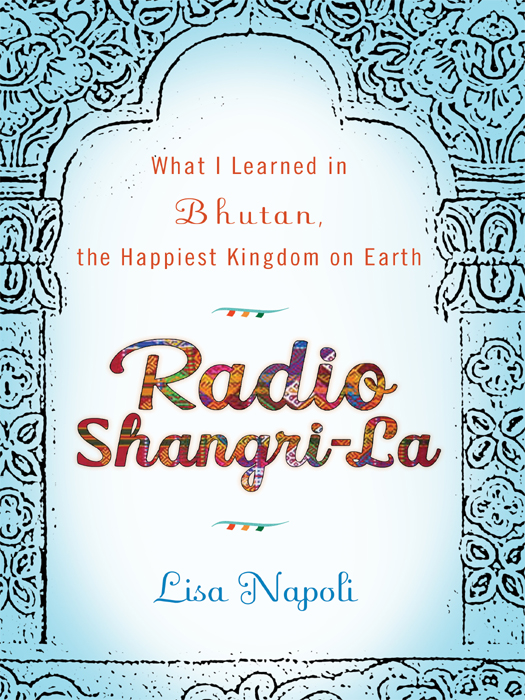
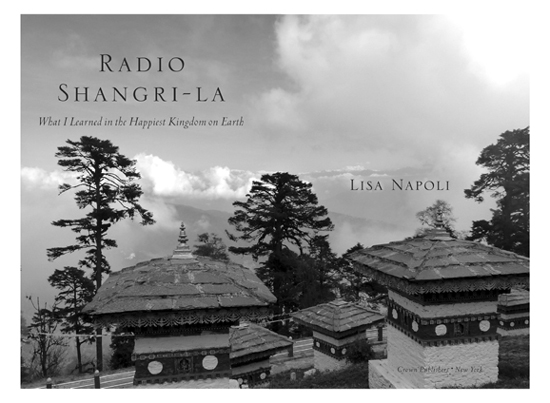
Copyright 2010 by Lisa Napoli
All rights reserved. Published in the United States by Crown Publishers, an imprint of the Crown Publishing Group, a division of Random House, Inc., New York. www.crownpublishing.com
CROWN and the Crown colophon are registered trademarks of Random House, Inc.
Library of Congress Cataloging-in-Publication Data
Napoli, Lisa
Radio Shangri-la: what I learned in the happiest kingdom on earth /
Lisa Napoli.
p. cm.
1. BhutanDescription and travel. 2. Napoli, Lisa, 1963TravelBhutan.
I. Title.
DS491.5.N37 2010
954.98dc22
[B] 2009049176
eISBN: 978-0-307-45304-4
Title page photo by Lauren Dong
Jacket design by Laura Duffy
v3.1
For Kinga Norbu and all the children,
may they find a happy path in a peaceful world

For my friends,
may they feel as much love and support as theyve given

For my parents,
who taught me that family doesnt have to be biological

Grant your blessings so that confusion on the path may be eliminated.
Grant your blessings so that confusion may dawn as wisdom.
Please bless me so that I may liberate myself by attaining realisation.
Bless me so that I may liberate others by the strength of compassion.
May all connections I develop be meaningful.
H IS H OLINESS THE T WELFTH G YALWANG D RUKPA ,
The Preliminary Practice of Guru Yoga
We are the station that makes you smile.
We can help you walk a mile.
And even when you stop and think
We can make you dance and sing.
Always do your thing, on Kuzoo FM.
Always do your thing, on Kuzoo FM.
K UZOO FM PROMOTIONAL JINGLE
T HE APPROACH TO the most sacred monastery in the Kingdom of Bhutan is steep and winding and, especially as you near the top, treacherous. You are sure with one false step youll plummet off the edge. Had I been here during certain times over the last few years, I might have hoped I would. It is a cold winters Saturday, dark and overcast. Misty gray clouds, pregnant with snow, hug the mountains.
My companions are several of the twenty-somethings who staff the new radio station in Bhutans capital city, where Ive come to volunteer. Kuzoo FM 90: The voice of the youth. Pema is wearing jeans and a sweatshirt and flat white dress shoes, the kind you might put on with a demure frock for a tea party. Ngawangs wearing the same stuff on top, but shes got sneakers on her feet. Each woman carries a satchel stuffed with her kira, the official national dress, requisite attire for Bhutanese who reach the summit. Kesang is already wearing his gho, the male equivalent. Over it, hes carrying a backpack filled with ten pounds of oil to fuel dozens of butter lamps, offerings to be left for the gods. Me, Im twenty years older, and practicality reigns: Ive got on my thick-soled boots, an ugly long black down coat with a hood, and six layers of clothing underneath.
So much for the strength Ive gained from my daily swimming regime; I am huffing and puffing against the altitude and the intensity of the climb. My new friends modulate their sprints to let me keep up.
Bhutanese are hearty in many mattersthey are used to living off the land, the hard lives of farmersbut they are particularly strong when it involves making the trek to this place called Takshang, built on a sheer cliff that soars ten thousand feet into the sky. The depth of their devotion becomes abundantly clear when, out of nowhere, a radiant twelve-year-old boy scurries down past us, stark naked, completely unaffected by the temperature and the incline. Hes trailed by a solemn entourage of grown men. Not one of them misses a step. Later, we learn this beatific adolescent is a reincarnated lama on pilgrimage from the remote eastern reaches of this tiny country.
A pilgrimage to Takshang is the highlight of a trip to Bhutan, but it is commonplace for the Bhutanese. They are carried here from babyhood. Slight, frail seniors navigate the twists and turns and inclines deftly from memory, in a fraction of the time it takes foreigners half their age. Tales are told of people with physical disabilities who labor for twelve hours so they might reach the top, where a cluster of temples awaits. The most sacred of the altar rooms there is open to the general public only once a year.
It is believed that meditating for just one minute at Takshang will bring you exponentially greater blessings than meditating for months at any other sacred site. If you travel here on a day the calendars deem to be auspicious, the merit you accumulate will be even more abundant. Ngawang tells us that the first time she remembers visiting was two decades ago, when she was four years old; her mother had died and the monks sent her here to pray.
What Takshang promises all who visit is cleansing and renewal. Into this valley in the eighth century a sage named Guru Rinpoche rode in on the back of a tigress. Then he retreated to a cave for three months and, with the most powerful weapon there ishis mindswashbuckled away evil spirits. In so doing, he persuaded the Bhutanese to adopt Buddhism as their guiding light. Hundreds of years later, to mark the feat, a colony of structures was built in this precarious locationtestament to how the people of Bhutan have long revered him, this being they consider the Second Buddha.
As we climb higher and higher, and as the gold-topped Takshang comes into view, I can feel Guru Rinpoches strength bolstering my own, diminishing demons, softening my heart.
T HIS IS THE STORY of my midlife crisisand how I wrestled with and then transcended it, thanks to a chance encounter that led me to a mysterious kingdom in Asia few have visited. In the march of years leading up to my fortieth birthday, and on the rapid ascent into that menacing decade, Id found myself Monday-morning quarterbacking every step of my life, haunted by the revisionist history of regret. A near-continuous looping chorus of what ifs and if onlys became my soundtrack:
Why had I failed to have a family with a man I loved?
Why had I squandered my youth so haphazardly?
Why had I stuck with a profession that infuriated me so intensely?
What could I do with the second half of my life to make it more meaningful than the first?
How was I going to grow old gracefully?
Inhaling the cold, clear air on that trek up to Takshang, on the other side of the world from home, the pain and noise of those questions began, finally, to melt away. To morph into a sense of acceptance and peace. No longer did I feel stuck on a treadmill of emptiness; now my life story read as full, exciting, wondrouswith limitless possibilities for the future.
And we hadnt even reached the most sacred spot on the mountain.
T HE GROUNDWORK FOR this awakening had been laid months earlier, when I had only the vaguest of ideas where this place called Bhutan was on the planet.
Font size:
Interval:
Bookmark:
Similar books «Radio Shangri-La: What I Learned in Bhutan, the Happiest Kingdom on Earth»
Look at similar books to Radio Shangri-La: What I Learned in Bhutan, the Happiest Kingdom on Earth. We have selected literature similar in name and meaning in the hope of providing readers with more options to find new, interesting, not yet read works.
Discussion, reviews of the book Radio Shangri-La: What I Learned in Bhutan, the Happiest Kingdom on Earth and just readers' own opinions. Leave your comments, write what you think about the work, its meaning or the main characters. Specify what exactly you liked and what you didn't like, and why you think so.




